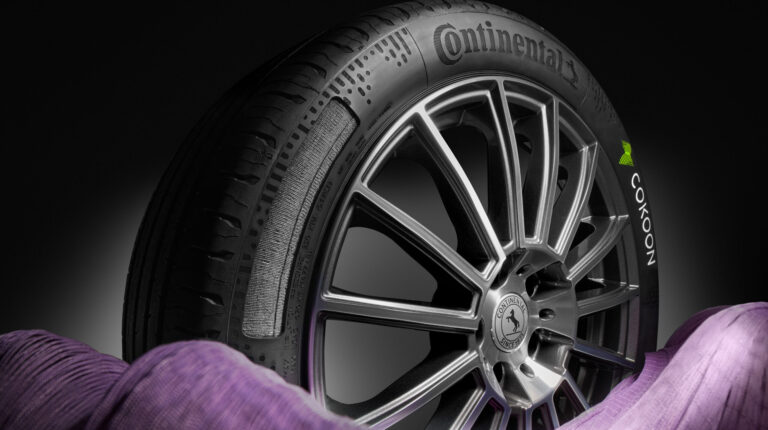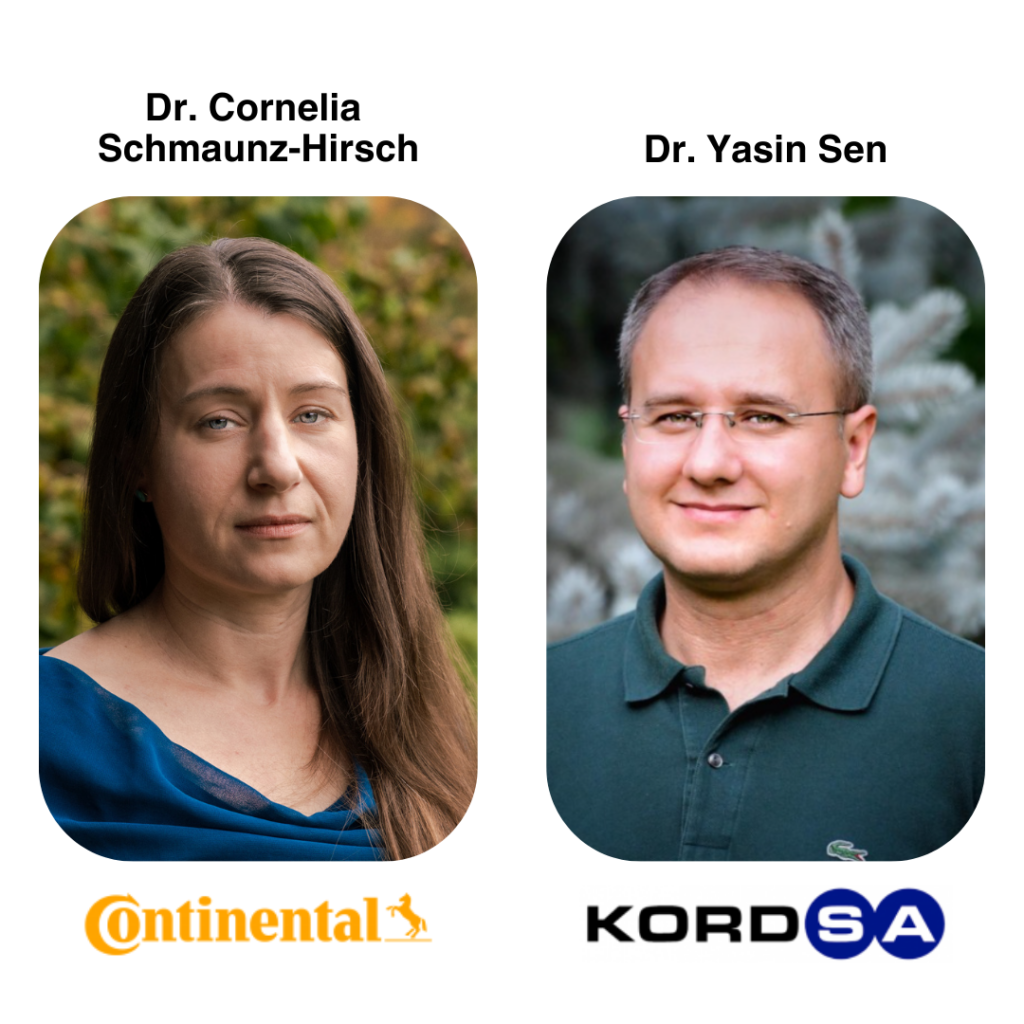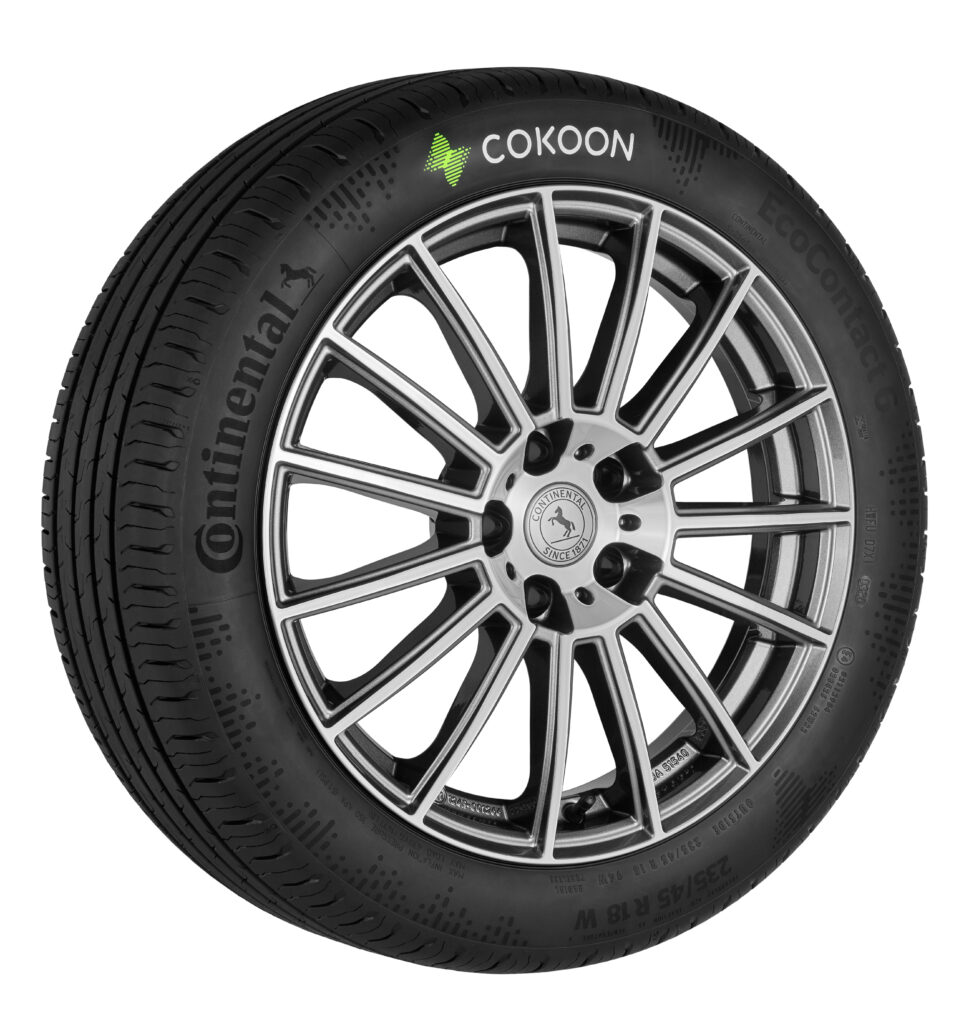TTI spoke with Dr Cornelia Schmaunz-Hirsch, senior reinforcement developer at Continental Tire’s global R&D Center; and Dr Mustafa Yasin Sen, expert researcher at Kordsa’s R&D Center, about their upcoming session at this year’s Tire Technology Expo Conference. The two will co-present on the development of their resorcinol- and formaldehyde-free bonding system, Cokoon – a joint project that reflects the two companies’ shared commitment to sustainability and open-source innovation.
A journey into sustainable chemistry
“Sustainable chemistry is a big part of my life,” explains Sen. “My journey into this area started with my PhD studies, in which I used enzymes instead of conventional catalysts to effectively functionalize polymers. After completing my PhD, I joined Kordsa in 2010 to synthesize superfibers with reduced carbon footprints for tire reinforcement applications. I then transitioned to developing resorcinol-formaldehyde-free adhesives for tire cords. Since 2017, we have been working closely with Continental to develop this technology.”
Continental’s Schmaunz-Hirsch began her journey into tire reinforcement development as a compound developer in 2011, which brought her into close contact with adhesion challenges.
“When the opportunity arose to lead the development and project management of our Cokoon project at Continental, I eagerly accepted,” she says. “Together with Kordsa, we have been working on this technology since 2017 to develop resorcinol- and formaldehyde-free dip technology with an open licensing pool for everyone in the tire industry.
“This project is an important part of my career, allowing me to contribute to an innovative and sustainable solution.”
Motivation and commitment for safer industry practices
“Developing a technology like Cokoon takes a lot of motivation, patience and perseverance,” Schmaunz-Hirsch continues. “Fortunately, at Continental Tires we have a culture of ‘one for another’, which means we support each other and always find ways to move on further. In this project in particular, I noticed that this is not just a phrase but something we do every day. The same goes for my work with the Kordsa development team. I always appreciate our efficient and effective cooperation.”
The sustainability aspect of Cokoon technology is also a big motivator, adds Sen. “The hazardous potential and physical properties of resorcinol, which is readily sublimated, and formaldehyde, which is volatile, are well known,” he explains. “By developing Cokoon, we are working to eliminate both substances. Knowing that our efforts contribute to a safer and more sustainable industry motivates me to continue this complex task.”
Overcoming industry challenges
Developing a viable alternative to the established resorcinol formaldehyde latex (RFL) dip technology presents significant hurdles. As Schmaunz-Hirsch notes, “The bond between textile and rubber compounds is highly sensitive to performance and failure modes. We develop a ‘one-size-fits-all’ solution that maintains high physical properties, uses commonly available chemicals and fits into standard production processes. This is no easy task, but thanks to Kordsa’s strong foundation we have made significant progress.”
Cokoon’s role in sustainability
Sustainability is central to Cokoon. The teams at Continental and Kordsa recognize the potential hazards of resorcinol and formaldehyde and are committed to replacing as many of these raw materials as possible with more sustainable alternatives in production, while maintaining the highest quality standards possible.
Continental’s broader sustainability goals include increasing the proportion of renewable and recycled materials in its tires to more than 40% by 2030. The tire maker has demonstrated specific and tangible evidence of this, from the launch of the UltraContact NXT (Conti’s most sustainable serial tire on the market), to the progress the company has made in decarbonizing its sites.
“We are proud to be at the forefront of this movement, continually pushing the boundaries to create more sustainable solutions for the future of mobility,” Schmaunz-Hirsch adds.
Looking to the future
The industry’s shift toward open-source models like Cokoon could be key to tire manufacturing and materials innovation.
“For about a century, resorcinol formaldehyde latex dipping has been the most widely used technology for bonding textile fibers to rubber,” says Schmaunz-Hirsch. “This process is widely used, not only in tire manufacturing but also in the manufacture of other rubber products. Both formaldehyde and resorcinol have properties that we do not support. Together with our partners, we at Continental are committed to working toward safer and more sustainable practices not only in our own production but also in the industry as a whole. Although these chemicals are used early in the production chain and are chemically altered by the vulcanization process, we believe it is our responsibility to eliminate them wherever possible. By switching to alternative bonding systems, we aim to create a safer and more sustainable industry. This proactive approach not only aligns with our commitment to sustainability but also enables a new standard for the industry.”
Showcasing Cokoon at Tire Technology Expo
At the upcoming Tire Technology Expo, Schmaunz-Hirsch and Sen will delve into the innovative aspects of Cokoon technology.
“We will show why a multisource approach, which we can achieve with our royalty-free open patent approach, is crucial for an alternative dip technology, and explain how companies can access Cokoon’s open-source solution,” Schmaunz-Hirsch says. The companies also encourage interested parties to contribute to a collective push toward sustainability and collaboration in the industry.
Call for collaboration
The joint message from Continental and Kordsa is clear: the tire industry stands at a pivotal moment where collaboration and innovation can drive meaningful change.
“The elimination of resorcinol and formaldehyde from the textile conversion process in tire production is of crucial importance,” Schmaunz-Hirsch says. “Even though the amount of adhesive on the textiles in a tire may be small, this step is essential for the further development of sustainably produced materials in our industry.
“Individual solutions from different textile suppliers may be too complex and time-consuming for the tire industry to approve, and may pose challenges for tire performance due to different application and market requirements,” she continues. “We therefore invite all interested companies that are not yet members of the pool to find out more. This will help them assess whether this collaborative approach could be a valuable opportunity for their business.”
By fostering open innovation and prioritizing sustainable practices, the Cokoon project aims to set a benchmark for the tire industry, proving that shared goals can lead to groundbreaking advances.
To attend this exclusive presentation, book your conference pass here.





